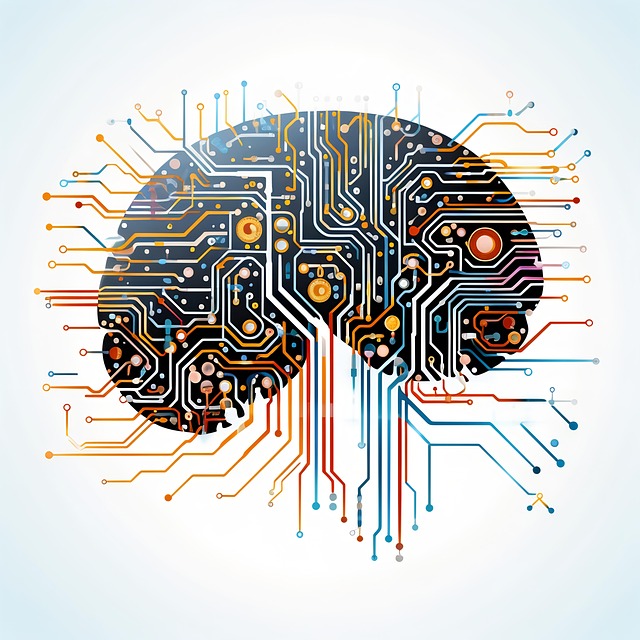AI innovation strategies for RV service diagnostics transform repair shops by leveraging advanced algorithms to analyze diverse data streams, enhancing efficiency and accuracy. These systems empower technicians with predictive insights, enabling faster diagnoses, proactive maintenance suggestions, and tailored repair recommendations. By streamlining processes, optimizing inventory management, and reducing costs, AI-driven diagnostics elevate customer satisfaction through precise, timely repairs, positioning shops as leaders in exceptional service experiences.
The rapid growth of artificial intelligence (AI) presents an unprecedented opportunity for RV repair shops to enhance their operations, improve customer satisfaction, and stay competitive in a rapidly evolving market. By integrating AI innovation strategies for RV service diagnostics, these shops can achieve remarkable efficiency gains. This article explores three key areas: leveraging AI for precise diagnostics, enhancing customer experiences with chatbots, and optimizing resource management through intelligent systems. Discover how these AI growth strategies can revolutionize the way RV repair shops conduct business, ensuring they meet the demands of modern customers while maximizing operational effectiveness.
- Integrating AI for Efficient RV Service Diagnostics: Unlocking Potential
- – Discuss the benefits of AI in improving diagnostic accuracy and speed.
- – Explore ways AI can analyze data from sensors and historical records to predict potential issues.
Integrating AI for Efficient RV Service Diagnostics: Unlocking Potential

AI innovation strategies for RV service diagnostics can revolutionize the way repair shops operate, enhancing efficiency and accuracy. By integrating advanced AI algorithms, shops can streamline their service processes, ensuring faster and more reliable vehicle assessments. These systems are capable of analyzing vast amounts of data from various sources, such as sensor readings, historical maintenance records, and manufacturer guidelines, to identify patterns and potential issues within RVs.
With AI-driven diagnostics, technicians gain valuable insights that enable them to make informed decisions. This technology can predict probable failures, suggest proactive maintenance, and even provide tailored repair recommendations. As a result, service times are reduced, and customer satisfaction increases due to more precise and timely repairs. Embracing AI innovation in RV service diagnostics is a strategic step towards staying competitive in the market and delivering exceptional service experiences.
– Discuss the benefits of AI in improving diagnostic accuracy and speed.

AI innovation strategies for RV service diagnostics offer a game-changing approach to enhancing efficiency and accuracy in repair shops. By leveraging advanced algorithms, AI systems can analyze vast amounts of data from various sources, including sensor readings, historical repair records, and manufacturer guidelines. This enables technicians to make more informed decisions, leading to faster and more precise diagnoses.
With AI, RV repair processes become streamlined, reducing the time typically spent on manual research and troubleshooting. The technology can quickly identify patterns, pinpoint potential issues, and suggest optimal solutions. This not only improves diagnostic accuracy but also allows for more efficient inventory management and cost-effective repairs, ultimately enhancing customer satisfaction.
– Explore ways AI can analyze data from sensors and historical records to predict potential issues.

AI innovation strategies for RV service diagnostics can dramatically enhance predictive maintenance and overall efficiency. By analyzing data from sensors installed on Recreational Vehicles (RVs), AI algorithms can detect patterns and anomalies that signal potential issues before they occur. For instance, sensors can monitor engine performance, tire pressure, battery health, and other critical systems, feeding this real-time data to AI models trained on historical records of repairs and maintenance. This allows repair shops to proactively identify problems, reducing unexpected breakdowns and extending the lifespan of RV components.
Furthermore, leveraging historical record analysis enables AI to pinpoint specific trends unique to different RV models or owners’ usage patterns. This level of insight can guide targeted diagnostic strategies, ensuring that service technicians focus their efforts on areas most likely to require attention. As a result, AI-driven diagnostics not only streamline the repair process but also foster a culture of preventive maintenance among RV owners.
AI innovation strategies for RV service diagnostics offer a transformative path forward for repair shops, enhancing efficiency and customer satisfaction. By integrating AI, shops can achieve faster and more accurate diagnoses through predictive analysis of sensor data and historical records. This not only improves workshop productivity but also enables proactive maintenance, reducing unexpected breakdowns and enhancing the overall RV ownership experience. Embracing these AI growth strategies is a key step towards staying competitive in the modern automotive industry.
